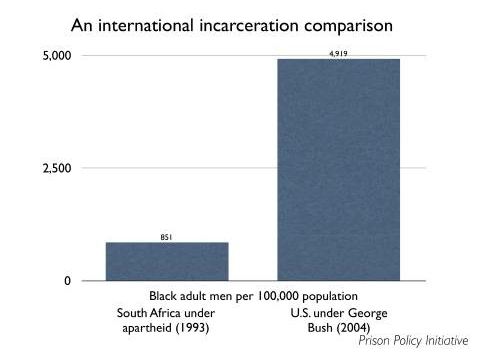June 12th, 2012 — 7:06pm

(read the book free online – get a copy for your Kindle – read the Reddit AMA)
A little while back al-Qaeda’s American-born spokesman “Adam the American” released a video exhorting Muslims in America to wage the “death by a-thousand cuts” version of jihad. Instead of looking to stage large dramatic attacks which would require months of preparation and planning, he implored would-be jihadis to simply buy guns and start shooting people:
Muslims in the West have to remember that they are perfectly placed to play an important and decisive part in the jihad against the Zionists and Crusaders, and to do major damage to the enemies of Islam waging war on their religion, sacred places, and brethren. This is a golden opportunity.
“The way to show one’s appreciation and thanks for this blessing, is to rush to discharge one’s duty to his [community] and fight on its behalf with everything at his disposal. And in the West you’ve got a lot at your disposal. Let’s take America as an example, American is absolutely awash with easily obtainable firearms…
Continue reading »
Comment » | Chicago, domestic terror, innercity violence, news, politics, racial inequality, terrorism, Uncategorized, war on drugs
June 8th, 2012 — 6:55pm

(read the book free online – get a copy for your Kindle – read the Reddit AMA)
Recent tax data recently led to a select group of families being labeled as “The Fortunate 400.” But before we look into where that name comes from, let’s consider something real quick.
There are hundreds of people who made more in one day of work than someone who pulls in just over six-figures a year. Much more in one day. Five times as much in fact, more in three-hours than he made in a year. Trying to argue that this is simply what happens in a capitalist economy gets a little bit fuzzy when you consider that although between the 1930s and the 1970s CEO pay increased by a modest four-percent, since the 1970s it has increased eight-fold while employee pay has remained stagnant:
The AFL-CIO reckons that the ratio of chief executive pay to median worker pay rose from 42-1 in 1980 to 343-1 in 2010. The average S&P 500 CEO now makes over $10 million a year, according to a report from the Institute for Policy Studies.
Continue reading »
Comment » | current affairs, news, politics, racial inequality, war on drugs
May 25th, 2012 — 11:52am

(read the book free online – read the Reddit AMA)
As our financial crisis deepens and the schisms between the haves and the have-nots continue to open, American drug laws and the prison system they’ve perpetuated are beginning to gather an increasingly harsh spotlight. But so what. It’s not like the War on Drugs, which started over forty-years ago in 1973, has done anything to increase the growing level of economic disparity in America… right?
A lot happened in 1973.
It was a few years after Nixon slammed the gold window shut, the waning hours of a decapitated Civil Rights movement, and the year we began to disentangle ourselves from Vietnam. But it also marks the genesis of the War on Drugs: the year the Rockefeller Drug Laws were passed. And that same year something funny happened: the income gap between black and white began to widen back out, instead of closing – as it had been up until 1973.
Did the start of the War on Drugs play a significant role in creating our present economic and social realities – where the average black family has eight-cents of wealth for every dollar owned by whites, and a black child is nine-times more likely than a white child to have a parent in prison?
Continue reading »
14 comments » | books, current affairs, domestic terror, news, politics, publishing, racial inequality, terrorism, war on drugs
August 1st, 2011 — 10:27pm

(read the book free online – get a copy for your Kindle – read the Reddit AMA)
Things had been looking up for black families, back in 1963 as MLK gave his “I Have A Dream” speech about 70% of black families were headed by a married couple. But that percentage steadily began to drop, between 1970 and 2001 it declined by 34%, double the white decline, and by 2002 it had bottomed out at just 48%.
But if the War on Drugs didn’t directly precipitate the destruction of the African-American family, why did the decline in married black women triple during the first decade of the War?
In fact, the impact of the War on Drugs has been so racially biased that although only 14% of all illicit drug users are black, blacks make up about half of those in prison for drug offenses. (When you adjust for the fact that the Department of Justice simply throws prisoners who identify as mixed race half-black and half-white out of their data, the proportion is well over half.) A black man is eight-times as likely as a white man to be locked up at some point in his life. And by 2006 America had, proportionally, almost six-times as many blacks locked up as South Africa did at the height of Apartheid.

Our penal system has grown so massive that the U.S. criminal justice system now employs more people than America’s two largest private employers, Wal-Mart and McDonald’s, combined.
Continue reading »
5 comments » | Arab Spring, current affairs, domestic terror, innercity violence, islam, news, politics, prison system, racial inequality, racial tension, racism, reform, revolution, terrorism, war on drugs
July 31st, 2011 — 10:29am

(learn more about the book at the “Ask Me Anything” on Reddit)
A newly released report from the Pew Research Center about the inescapably color-coded impact of the recent recession brought some startling data to light: the median net-worth of a white family is now 20 times that of a black family, nearly doubling the size of the pre-recession gap. The wealth differential between whites and minorities in America is now at an all-time high, a startling reality that was reported on by many major news organizations.
But no one explored the long-standing economic disparities that existed between races in America long before the current economic crisis emerged, or even attempts to get to the root of the issue. Roots which extend back to the birth of sub-prime mortgages, an industry that wasn’t about classifying the mortgages themselves but instead about categorizing and labeling the people applying for them based on one important and decisive factor.
Plenty of articles mentioned the fact that between 2005 and 2009 although white families saw their median wealth fall by 16%, blacks watched their median wealth plummet 53%. Much of the disparity is accounted for by the Pew Research Center as a result of declines in media home equity, but why should black and white homes have such different values?
Eminem seemed to have no sense of the irony that was invoked as his self-consciously white autobiographical film, 8 Mile, highlighted the hopeless plight of Detroit’s urban black community that’s existed for generations. The 8 Mile district was created in 1941, when a six-foot wall was built around a black enclave that was deemed unfit to accept loans from the Federal Housing Administration. This was “part of a system that divided the whole city, in theory by credit-rating, in practice by colour.” And so the segregation that emerged in Detroit “was not accidental, but a direct consequence of government policy.”1
Continue reading »
Comment » | Uncategorized










